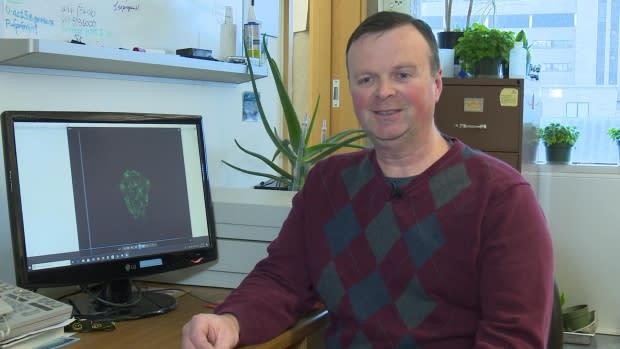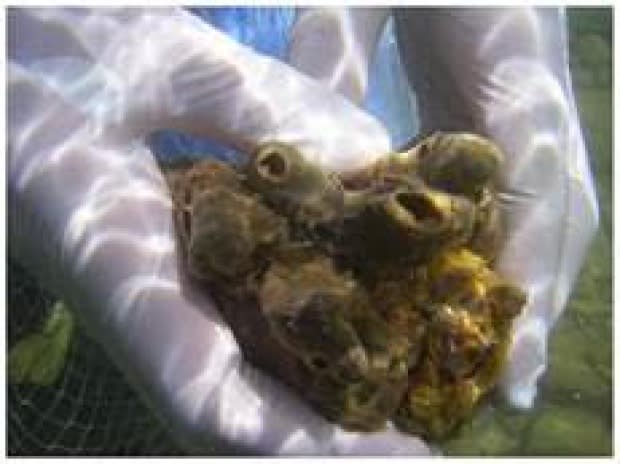Marine sponge could help treat cancer — but it's got problems
Researchers at Queen's University in Kingston, Ont., have discovered a toxin in marine sponges that could potentially be used to help treat metastatic cancers. But there are a couple of problems with it.
The sponges are scarce, and harvesting them could have negative effects on their ecosystem, according to Dr. John Allingham, one of the researchers working on the project.
"We'd be disrupting a delicate environment where these organism live in order to scavenge enough to use in cancer therapy. We'd be irresponsible scientists to go about that process," Allingham said.
Instead, the team has been attempting to reproduce the toxin in the lab.
"If we can make it synthetically, I think we'll be making something better," Allingham said.

The toxin, mycalolide B, is found in sponges that live on the ocean floor off the coast of Japan.
Dr. Andrew Craig and his team, which includes Allingham, found that when cancer cells are exposed to the toxin, the cancer retracts, thereby limiting its ability to spread.
"One of the cancer types that we've studied so far is ovarian cancer. It's a deadly cancer in women because it is often spread even before the patient knows they have cancer," Craig said.
But another complication with the toxin is that it doesn't distinguish cancerous cells from healthy ones.
"The main issue is cancer cells have the same sets of proteins that all the rest of our cells have," Allingham explained.
The research team is trying to reproduce a similar toxin that only targets cancerous cells, something Allingham said might take five to six years.

Still, Craig said if they can work out the kinks, the toxin could help save lives.
"I don't think we have a cure. What we do have is a potential for a new combination that could complement cancer treatments that we already have," Craig said.

